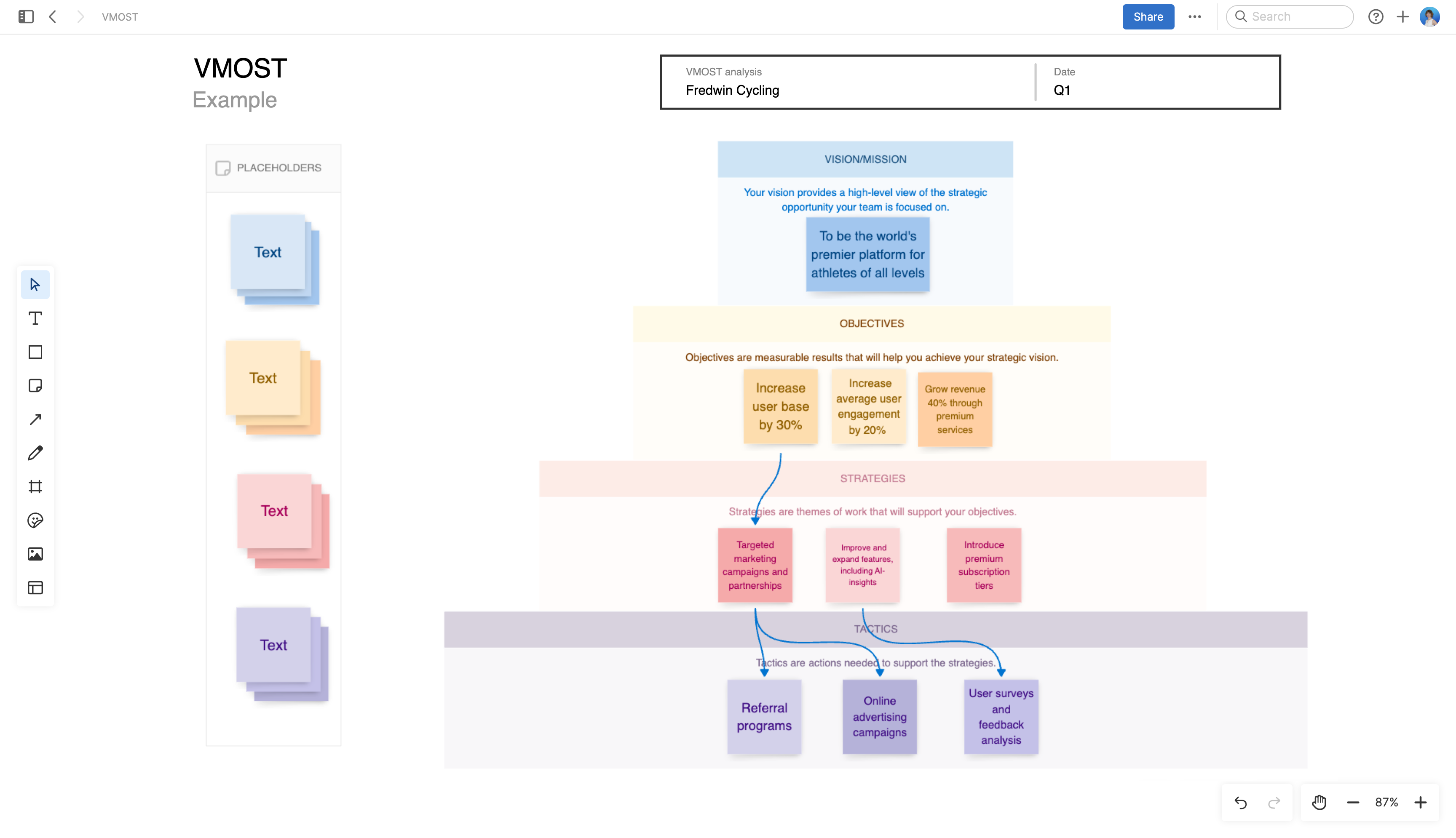VMOST analysis template
Summarize your product vision, mission, objectives, strategies, and tactics
Use template
About the VMOST analysis template
If you cannot succinctly describe where your product is headed and how it will benefit customers, you can get stuck focusing on the "what" (features) rather than the "why" (strategy). And it is the "why" that will inspire the team and propel you forward.
This VMOST template — which stands for vision, mission, objectives, strategies, and tactics — is a powerful framework to help you shape your "why" and articulate the high-level approach for achieving it. Then, you can identify the practical steps you will take to execute on the strategy.
When completing a VMOST, consider the balance between aspirational vision and actionable tactics, ensuring that all components are specific, measurable, and time-bound. Regular reviews and stakeholder alignment are essential for helping everyone understand and work towards a common goal.
Best practices
Clarify your purpose, set measurable goals, and briefly outline how you will achieve them.
Aim high Look out 5+ years. Where do you want your product to be in the future? As you define your vision, be sure that it aligns with top-level company goals and values.
Target narrow Concentrate on 3-5 objectives to avoid spreading attention and resources too thin. Remember that while your vision and mission should stay relatively static, your strategies and tactics will adjust in response to customers and the market.
Communicate often Clearly communicate the VMOST to stakeholders and team leaders. Establish feedback loops so folks can share their perspectives and you can work together to refine the plans.